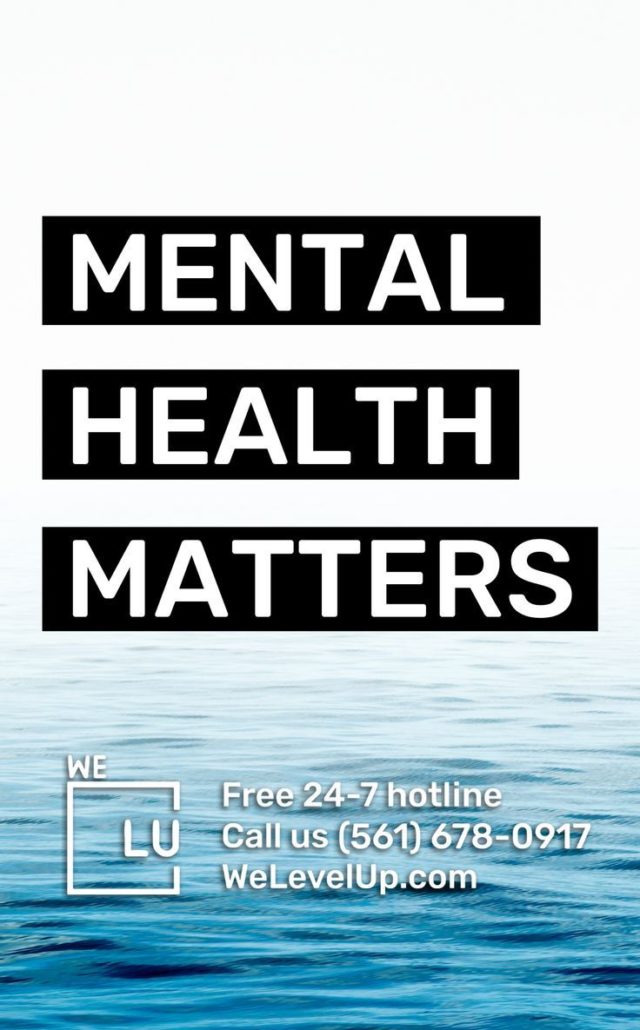What Is ADHD? ADHD and Depression
Attention deficit hyperactivity disorder (ADHD) is a mental health disorder that affects the brain. It makes it difficult for a person to pay attention and control their behavior. According to the National Institute of Mental Health, ADHD affects an estimated 15 million people in America. In addition, it is more common in males than females.
The American Psychiatric Association (APA) recognizes ADHD as a medically and legally treatable condition. Individuals with ADHD may have a hard time maintaining attention and finishing tasks. Attention deficit hyperactivity disorder can lead to unstable relationships, poor work performance, depression, and substance abuse. Proper ADHD Treatment is attainable, therefore, early detection is a must.
It can be challenging to diagnose and treat depression and ADHD because they share many symptoms. For instance, the inability to concentrate is a symptom of both depression and ADHD.
When persons with ADHD struggle with their symptoms, it can cause depression. Adults may experience problems at work, while kids may struggle at school or with playmates. Deep feelings of hopelessness and other symptoms of depression may result from that.
ADHD Symptoms
A person may not be diagnosed with ADHD until adulthood because teachers or family did not recognize the condition at a younger age.
Symptoms can become more severe when the demands of adulthood increase.
- Difficulty finishing tasks
- Problems listening to others
- Struggles with organizing projects or responsibilities
- Forgetfulness
- Constant fidgeting
- Inability to control speech or actions
- Frequently losing or misplacing personal items
Depression Symptoms
- Persistent feelings of sadness or emptiness.
- Loss of interest or pleasure in activities once enjoyed.
- Significant changes in appetite and weight.
- Sleep disturbances (insomnia or excessive sleep).
- Fatigue or loss of energy.
- Feelings of worthlessness or excessive guilt.
- Difficulty concentrating or making decisions.
- Restlessness or slowed movements.
- Recurring thoughts of death or suicide.


Skip To:
Learn More:
ADHD Fact Sheet
ADHD Overview
A long-term disorder characterized by impulsivity, hyperactivity, and trouble paying focus. ADHD frequently manifests in early childhood and can last into adulthood. Low self-esteem, problematic relationships, and challenges at school or at work may all be impacted. Limited attention and hyperactivity are symptoms. Talk therapy and medication are used as treatments.
ADHD Symptoms
- Behavioral: Aggression, excitement, fidgeting, hyperactivity, impulsivity, irritability, a lack of self-control, or a pattern of repeatedly repeating words or actions.
- Cognitive: short attention span, forgetfulness, difficulty focusing, absentmindedness, or other cognitive symptoms.
- Mood: Feelings of hostility, worry, boredom, enthusiasm, or mood swings
- Also common: Depression and learning disabilities are also frequent.
ADHD Treatment
- Support group: A place where those pursuing the same disease or objective, such as weight loss or depression, can receive counseling and exchange experiences.
- Cognitive behavioral therapy: A conversation treatment that aimed to change the negative attitudes, actions, and feelings connected to psychiatric discomfort.
- Counseling psychology: A subfield of psychology that handles issues with the self that are connected to work, school, family, and social life.
- Anger management: To reduce destructive emotional outbursts, practice mindfulness, coping skills, and trigger avoidance.
- Psychoeducation: Mental health education that also helps individuals feel supported, validated, and empowered
- Family therapy: psychological counseling that improves family communication and conflict resolution.
End the Emotional Pain. Get Your Life Back.
Feeling Depressed, Anxious or Struggling with Mental Health Illness? Get Safe Comfortable Mental Health Dual Diagnosis High-Quality Therapy From Counselors That Care. Begin Your Recovery Now.
Hotline: (509) 348-4077

ADHD and Depression Statistics
Attention-Deficit/Hyperactivity Disorder (ADHD) and depression are two prevalent mental health conditions that can significantly impact the lives of affected individuals. While they are distinct disorders, they can sometimes coexist, leading to unique challenges in diagnosis and treatment.
Comorbidity of ADHD and Depression:
- Studies have shown that individuals with ADHD are at a higher risk of developing depression compared to those without ADHD.
- The prevalence of depression in individuals with ADHD can be as high as 30%, significantly higher than in the general population.
- The coexistence of ADHD and depression can complicate diagnosis and treatment approaches, as symptoms may overlap or be masked by the presence of the other disorder.
Depression Statistics:
- Depression is a widespread mental health disorder affecting people of all ages and backgrounds.
- The World Health Organization (WHO) reports that over 264 million people worldwide were affected by depression in 2020.
- Major Depressive Disorder (MDD) is one of the most common forms of depression. It affects approximately 7.5% of adults in the United States each year.
- Depression can occur at any age, and it is more prevalent in females than males.
ADHD Statistics:
- According to the Centers for Disease Control and Prevention (CDC), approximately 9.4% of children in the United States aged 2-17 have been diagnosed with ADHD as of 2016.
- Boys are more commonly diagnosed with ADHD than girls, with a prevalence of 12.9% in boys compared to 5.6% in girls.
- ADHD is not limited to childhood; it can persist into adolescence and adulthood. Around 4.4% of adults in the United States have been diagnosed with ADHD.
6 Million
The estimated number of children aged 3–17 years ever diagnosed with ADHD, according to a national survey of parents, is 6 million (9.8%) using data from 2016-2019.
Source: Centers for Disease Control and Prevention
62%
A national parent survey from 2016 reported on medication and behavior treatment for children 2–17 years of age with current ADHD 62% were taking ADHD medication
Source: Centers for Disease Control and Prevention
15 Million
ADHD affects an estimated 15 million people in America.
Source: National Institute of Mental Health
Types of ADHD
ADHD is a mental disorder that affects many people, and there are different types of this disorder. Types of ADHD can be an inattentive type or a hyperactive-impulsive type.
Inattentive Type
A person with this type often loses focus and thus gets off-topic, people must have at least six of these nine symptoms,
- Making careless mistakes.
- Failing to pay attention and keep on task.
- Not listening.
- Being unable to follow or understand instructions.
- Avoiding tasks that involve effort.
- Being distracted.
- Being forgetful.
- Losing things that are needed to complete tasks.
Hyperactive-Impulsive Type.
The hyperactive-impulsive type must have six or more of these symptoms:
- Fidgeting.
- Squirming.
- Getting up often when seated.
- Running or climbing at inappropriate times.
- Having trouble playing quietly.
- Talking too much.
- Talking out of turn or blurting out.
- Interrupting.

Combined Type
The Combined Type means that the person has symptoms from both types, while the Predominantly Inattentive Type means that the person only has symptoms of the first type. People usually go through a series of stages before they receive an accurate diagnosis for either type (Types of ADHD). Someone who is diagnosed with primary inattentiveness might be told they have ADD or some other disorder (Types of ADHD). Since there is still some debate among experts.
Types of ADHD vary in severity. Usually, with medication, most people can adjust to dealing with this disorder. Sometimes there is a possibility that if you don’t take your medication correctly it could cause an overdose with serious consequences. Types of ADHD are different for everyone who has them, but they are all manageable if taken seriously and properly dealt with.
Get Help. Get Better. Get Your Life Back.
Searching for Accredited Dual Diagnosis Mental Health Centers Near You?
Even if therapy failed previously, or are in the middle of a difficult crisis, we stand ready to support you. Our trusted behavioral health specialists will not give up on you. When you feel ready or just want someone to speak to about counseling alternatives to change your life call us. Even if we cannot assist you, we will lead you to wherever you can get support. There is no obligation. Call our hotline today.
FREE 24/7 Dual Diagnosis Mental Health Services HotlineWhat Is The Best Medication for ADHD and Depression? Best ADHD Medication for Adults with Anxiety and Depression
What drugs might your doctor recommend to you? The best antidepressant for ADHD and depression (best medication for anxiety depression and adhd) is different for everyone. The choices that may be presented to you are listed below:
ADHD and depression medication combination: Stimulants
Patients may be prescribed stimulants like Adderall for ADHD and depression (amphetamine/dextroamphetamine). The chemicals in the brain that help with focus are increased by stimulants. However, they may also cause adverse reactions like lack of appetite or insomnia.
Medication for ADHD Anxiety and Depression: Non-stimulants
Non-stimulants such as Strattera (atomoxetine) may also be prescribed for ADHD.
ADHD Medication and Depression: Antidepressants
For depression, doctors may give antidepressants, such as Wellbutrin (bupropion), which also eases the symptoms of ADHD. It may take several weeks before you can tell whether or not an antidepressant is effective.
CBD for Depression and ADHD
Anxiety and depression are two of the many co-occurring illnesses that ADHD is frequently linked to. CBD may assist those who also have ADHD by easing their symptoms of anxiety and despair since it has shown promise as a potential treatment for a number of mental health issues.
Natural Supplements for ADHD and Depression
These are the most popular natural supplements for ADHD and depression and natural remedies for depression and ADHD for mitigating symptoms:
- Omega-3s.
- Zinc.
- Iron.
- Magnesium.
- Vitamin C.
- Melatonin.
Therapy
While therapy for depression may focus on recognizing and replacing negative ideas and behaviors, psychotherapy for ADHD tries to improve focus and boost self-esteem (which may also be helpful for ADHD).
In a study of 77 adults with ADHD, it was shown that those who had had intensive psychotherapy and
First-class Facilities & Amenities
World-class High-Quality Mental Health Services & Behaviroal Health Substance Abuse Treatment
Rehab Centers TourRenowned Mental Health Centers. Serene Private Facilities. Inpatient Rehab Programs Vary.
Mental Health Helpline: (509) 348-4077Proven recovery success experience, backed by a Team w/ History of:
15+
Years of Unified Experience
100s
5-Star Reviews Across Our Centers
10K
Recovery Success Stories Across Our Network
- Low Patient to Therapist Ratio
- Comprehensive Dual-Diagnosis Treatment
- Complimentary Family & Alumni Programs
- Coaching, Recovery & Development Events
- Comfortable Onsite Medical Detox Center
ADHD Depression Causes
Causes of ADHD:
- Genetics: ADHD tends to run in families, indicating a genetic component. Having a close relative with ADHD increases the risk of developing the disorder.
- Brain Chemistry and Structure: Differences in certain neurotransmitters (such as dopamine and norepinephrine) and brain structures involved in attention and impulse control have been observed in individuals with ADHD.
- Environmental Factors: Prenatal exposure to toxins (e.g., alcohol, smoking) and maternal stress during pregnancy may play a role in the development of ADHD.
- Brain Injuries: Traumatic brain injuries or damage to the brain during early development can increase the risk of ADHD.
- Premature Birth: Premature birth and low birth weight have been associated with an increased likelihood of developing ADHD.
Causes of Depression:
- Biological Factors: Changes in neurotransmitter levels, particularly serotonin, norepinephrine, and dopamine, are associated with depression. Additionally, structural and functional changes in certain brain regions can also be involved.
- Genetics: Like ADHD, depression also tends to have a genetic component. Having a family history of depression increases the risk of developing the condition.
- Stress and Trauma: Traumatic events, chronic stress, or significant life changes can trigger or contribute to the onset of depression.
- Medical Conditions: Certain medical conditions, such as chronic illness, hormonal imbalances, and thyroid problems, can be linked to depression.
- Environmental Factors: Adverse childhood experiences, lack of social support, and difficult life circumstances can be associated with depression.
- Chemical Imbalance: While the exact relationship between neurotransmitter imbalances and depression is not fully understood, it is believed to play a role in the development of the condition.
It’s essential to note that ADHD and depression can often coexist in individuals, and having one condition may increase the risk of developing the other. Additionally, psychological and social factors can also interact with biological factors in the development of both disorders. If you or someone you know is experiencing symptoms of ADHD, depression, or a combination of both, seeking professional help is recommended for a comprehensive evaluation and appropriate treatment.
World-class, Accredited, 5-Star Reviewed, Effective Mental Health Dual Diagnosis Programs. Complete Integrated Inpatient Rehab with Free Post Discharge Therapy Planning.
Hotline: (509) 348-4077End the Emotional Pain Rollercoaster. Gain Stability & Happiness Through Recovery Treatment. Start Mental Health Counseling Today. Get Free No-obligation Guidance by Behaviroal Health Specialists Who Understand Mental Health Recovery.
Popular ADHD and Depression FAQs
-
Does ADHD cause depression?
ADHD does not directly cause depression, but individuals with ADHD may have a higher risk of developing depression due to the challenges and stress associated with managing the disorder.
-
When is ADHD typically diagnosed?
ADHD is typically diagnosed in childhood, with symptoms often becoming noticeable during early school years. However, some individuals may not receive a formal diagnosis until adolescence or adulthood if their symptoms were mild or overlooked earlier in life.
Watch How to Improve Mental Health? 8 Steps & Tips for Maintaining Your Mental Wellbeing. Find Top Mental Health Tips & Anxiety Tips Advice from a Therapist.
Experience Transformative Recovery at the We Level Up Treatment Center.
See our authentic success stories. Get inspired.
Get the help you deserve.



Start a New Life
Begin with a free call to a behavioral health treatment advisor. Learn more about our dual-diagnosis programs. The We Level Up treatment center network delivers recovery programs that vary by each treatment facility. Call to learn more.
- Personalized Care
- Caring Accountable Staff
- World-class Amenities
- Licensed & Accredited
- Renowned w/ 5-Star Reviews
We’ll Call You
Search We Level Up WA Mental Health ADHD and Depression Topics & Resources
Sources
[1] American Psychiatric Association (APA)
[2] What is ADHD? – Centers for Disease Control and Prevention
[4] ADHD Treatment Recommendations
[5] Attention-Deficit/Hyperactivity Disorder
[6] Attention deficit hyperactivity disorder (ADHD)
[7] Dealing with ADHD: What You Need to Know
[8] Adults With Attention Deficit Hyperactivity Disorder and Substance Use Disorders
[9] Attention Deficit Hyperactivity Disorder: Diagnosis and Treatment in Children and Adolescents